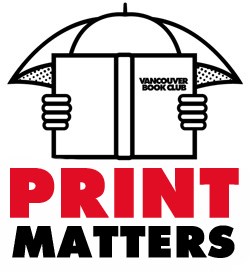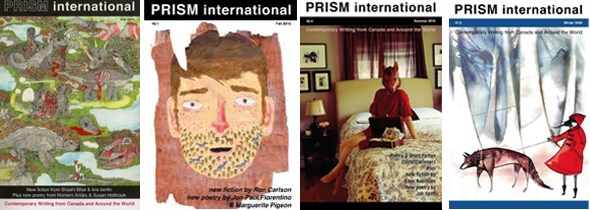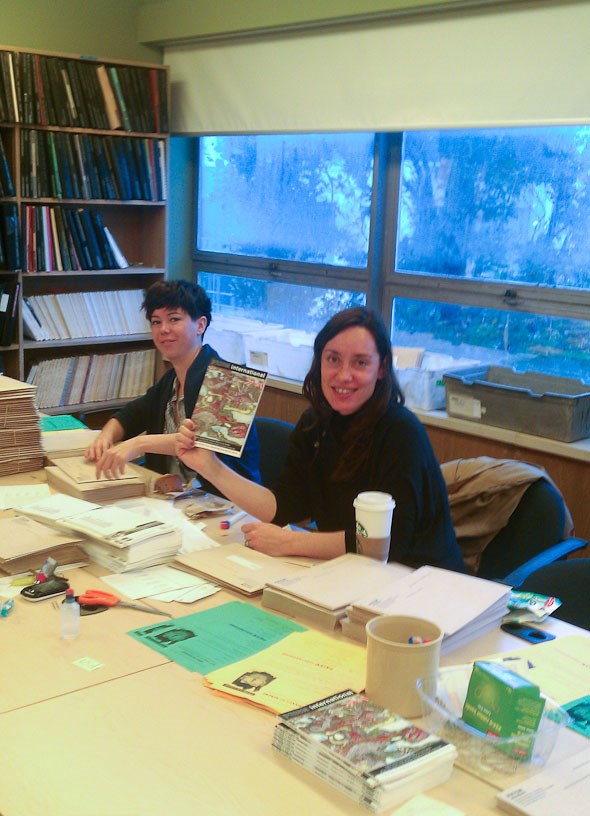At the time of its founding in 1959, PRISM was the only literary journal west of Toronto, making it Vancouver’s oldest literary journal. But there is nothing old about this publication. Focused on contemporary writing and with a change in the editorial mandate every year, focus and content is continuously in shift and current. Connected with the UBC Creative Writing MFA program, the editors rotate annually, but the dedication to contemporary literature hasn’t changed since its first issue. I spoke with andrea bennett, current Executive Editor (Circulation and Promotions) and former Poetry Editor, about their content selections, Vancouver’s literary scene and the current direction of PRISM International.
Has PRISM always been focused on contemporary writing?
Yes. Our mandate is to publish contemporary writing from Canada and around the world. Our content varies from year to year, depending on our slush pile, but we are focused on publishing a mix of contemporary Canadian and international work.
You feature mostly fiction and poetry, but you also feature creative non-fiction.
We're certainly open to other forms, like translation and playwriting, but we typically receive mostly fiction and poetry, with some non-fiction. We hold three annual contests: fiction, non-fiction and poetry — so for our non-fiction contests, we'll get a lot of entries. Throughout the year, we find we don't receive a ton of non-fiction.
Why do you think?
Well, we do get some of what has been characterized as “Old Lady Cat Memoir.” We're looking for something a bit different — that contemplative tea-drinking Canadian writing is not really our thing. Our editorial mandate changes a bit from year to year according to our editors, but we're generally all starting our careers, and we're all pretty familiar with the terrain of literary magazines in Canada, and we're not looking for something we've read 100 times before. Memoir and personal essay are difficult to write. I think there's a current resurgence in the popularity of non-fiction, though, and hopefully we'll see that translate into more non-fiction submissions throughout the year.
How do you think the publication changes when the editors change from year to year?
I like prose poetry. I like other kinds of poetry too, but I’d say prose poetry is my favourite, and the new editor loves experimental, like concept poetry — so two very different sides of the same genre. If you are paying really close attention, there will probably be a shift in the content from year to year, and probably also the tone. I think it's a good thing. New editors come in every year and they're energetic and opinionated and have a lot of ideas.
As a literary journal, is PRISM considered edgier because it is student-run?
I think the content can be edgier, for sure. We're MFA students, and we spend a lot of our time workshopping, and we have short attention spans. We're looking for writing that demands our attention. One of the challenges we're facing currently is that the aesthetic of the magazine doesn't quite meet the content. I was talking to Tracy Stefanucci, who is the managing editor of OCW Magazine and who just opened, with Jaz Halloran, a new space called Project Space at Main and Georgia. We talked about how the aesthetic of Canadian literary journals in general is a bit outdated, and how it'd be great to collaborate and redesign everything.
So you’re trying to change the aesthetic of PRISM?
Generally the cover designs shift a bit from year to year, but again, you might only notice that if you are paying really close attention. Last year we focused on redesigning the website, and this year we are going to focus on redesigning the magazine itself.
Do you accept submissions of art?
We do. We are looking for covers generally, because the guts of the mag are printed in black and white. But if someone was working on a graphic project, like a comic, we would definitely take a look at it, if it would work within our format. People should send us comics; it would be fun. I think there are probably more people that have overlapping backgrounds with writing and design, illustration, art backgrounds than I get to see, and I would like to see more of that.
How often do you publish Vancouver writers?
We publish writers from the Lower Mainland quite frequently. Hmm, who have we published in the last year? Jennica Harper, Liz Bachinsky, Lorna Crozier—though she is from the island.
Jen Neale, a PRISM editorial board member, and Cara Woodruff, PRISM's fiction editor, preparing the PRISM mailout. Photograph courtesy of andrea bennett.
Does PRISM do events as part of literary scene in Vancouver?
Yes, we have been trying to integrate a bit more. Last year, we did a communal reading with seven other literary magazines from Vancouver. We held it at Beaumont Studios with Geist, OCW Magazine, Poetry is Dead, Subterrain, Ricepaper, Event, and Joyland, and we will be doing something similar this year.
How long has your blog online been going on?
Just since last year. We overhauled the website last year so that we could get our editorial board and all of the editors to start contributing, and do online reviews, and just post stuff that we find interesting. We are all writers ourselves, so we post things that we come across, and I think we also use it as an excuse to interview people that we have huge writer-crushes on. So last year, Cara Woodruff (the current fiction editor) and I interviewed Sheila Heti, which is awesome. She is from Toronto and she started something called Trampoline Hall [editor's note: there will be a Trampoline Hall event at this year's PuSh Festival] and she has written a whole bunch of really great fiction and non-fiction. Cara published excerpts from her most recent book (which was written with Misha Glouberman), The Chairs are Where the People Go, in issue 50.1 of PRISM.
-----
PRISM is a great read and is published 4 times a year in Vancouver, BC. Check it out: prismmagazine.ca.





